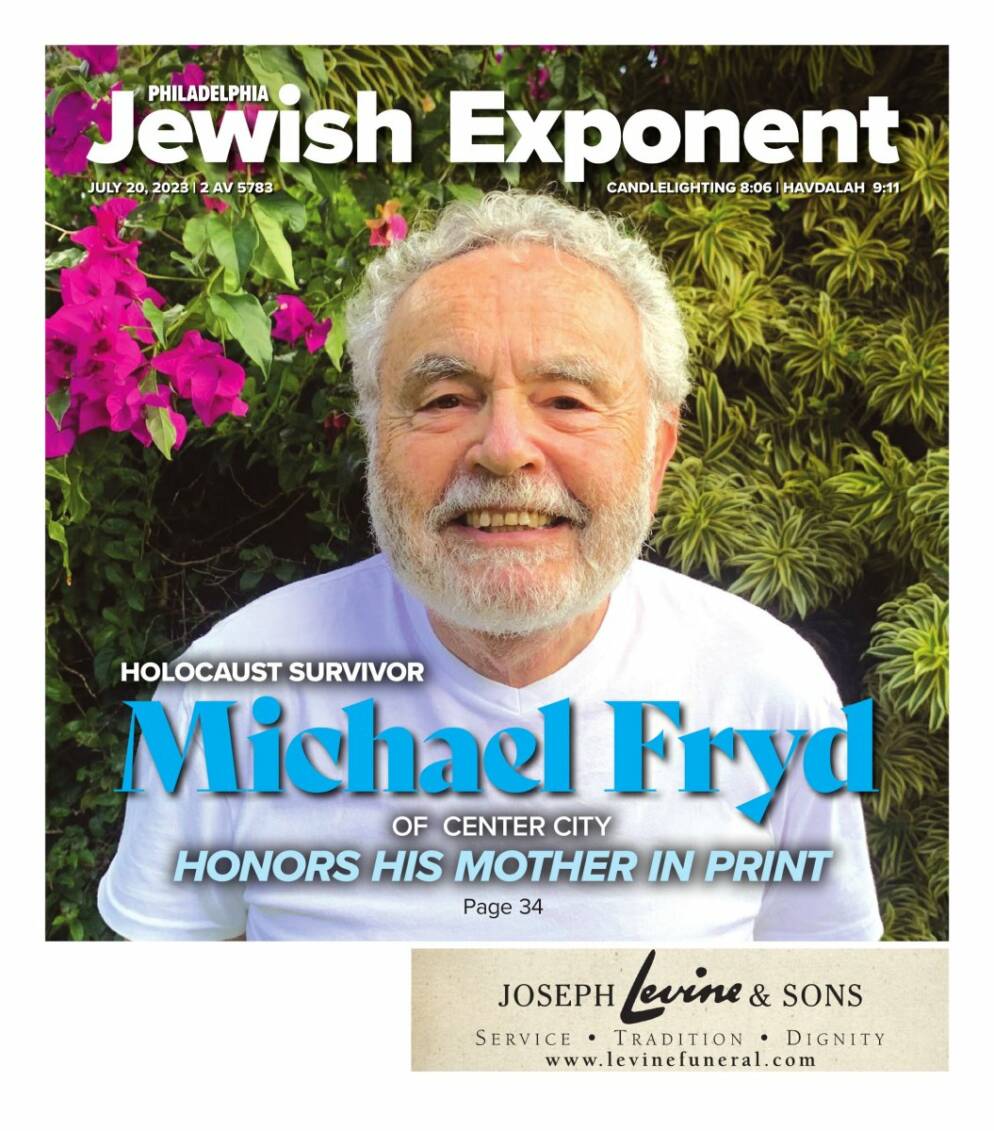Uncategorized
Opinion | Before Marie Kondo, There Was the Talmud – Jewish Exponent
By Marina Ioffe
Inundated with unpacked boxes, unsorted toys, mountains of cords and clothing, wardrobes in multiple sizes, reference manuals and outdated technology sprawled everywhere, households are drowning in accumulated stuff. This crisis has inspired the popularity of everything from organizational life-hacks to hoarding reality TV shows based on Marie Kondo’s widely popular book The Life-Changing Magic of Tidying Up.
The Jewish community is not immune to this clutter problem, and it becomes particularly dramatic once the joy of Purim has ended and the Passover cleaning begins to loom. We should be anticipating our celebration of the Exodus, but there’s just so much to clean and so much to organize. In opposition to the all-encompassing scrub-with-a-toothbrush approach, schools of thought like “The One Day Passover Cleanup Guide” advocate for more sanity and less physical labor. While such tactics can help with the cleaning anxiety by lessening the load, they don’t help with the primary cause: We have too much stuff piled around the house because we don’t know how to take care of it.
Get Jewish Exponent’s Newsletter by email and never miss our top stories
We do not share data with third party vendors. Free Sign Up
Is organization a Jewish virtue, which is to say, do we have a special mitzvah to be tidy? Does the Torah have anything to teach us about keeping our homes neat and organized? “How does the bed of a Torah scholar look?” the Talmud asks in Bava Basra (58a). “Any bed that has nothing stored beneath it except sandals during the summer season and shoes during the rainy season.” By contrast, what do we find under the bed of an unlearned person? It is “like a jumbled storeroom.”
Our possessions should be carefully curated for a specific purpose, and should bring us joy. In every Marie Kondo episode there is a moment when her clients are asked to consider whether an item still sparks joy or if it’s just filling space. If something has outlived its usage, owners are encouraged to thank the item and let it go. Centuries before Kondo, the Talmud advocated the plainest of organizing solutions: Own a pair of shoes for the dry season, own a pair of shoes for the wet season, and keep them under your bed. By turning our homes into clean, thoughtful spaces, we are enabled to better serve God with joy.
Why does owning so much stuff give us anxiety? Pirkei Avot addressed this dynamic when the sages wrote, “The more possessions, the more worry.” Long before Biggie Smalls intoned “Mo’ Money Mo’ Problems,” the rabbis understood, in a time when cheap, disposable products were not the norm, that overindulgence in material possessions is overwhelmingly anxiety- producing.
Our problems aren’t always like Biggie’s (the inevitable attention and ayin hara that material wealth generates) but sometimes simpler and more innate — we are trying to fill a void with our purchases. We buy objects to make our lives easier and more carefree, and then find ourselves drowning in them. Our homes are cluttered with purchases that fill our basements, kitchens, playrooms and closets, as if the department stores will not exist tomorrow. We hold on to things “just in case,” to the point of not remembering what we have; and in all that having, what we actually want gets lost. How many times have you raced around the house looking for your keys, your phone, a missing shoe, a sweater or bank statement? How many of the things that you own would you really want to keep if you had to sort through it all?
Out of the fear of precarity, that we just won’t have enough, we stuff our homes with possessions. Accumulation becomes a cheap surrogate for true plenty — a relationship with God centered around the trust that all of our needs will be met. Just as the Jews in the desert trusted that God would provide the manna, so too should we trust that God will provide us with possessions when we need them.
In “A Place for My Stuff,” comedian George Carlin riffs on a familiar experience: “That’s all your house is — a place to keep your stuff. If you didn’t have so much stuff, you wouldn’t need a house… A house is just a pile of stuff with a cover on it… Sometimes you gotta move, gotta get a bigger house. Why? No room for your stuff anymore.” Actually, a Jewish home is a place to do mitzvot. Our stuff is merely a facilitator of that purpose — doing mitzvot. Anything that hinders that has no place in our homes, and anything that does not bring us joy hinders that.
The Ba’al Shem Tov teaches us that joy breaks through all boundaries. As long as we live in the Exile, we may continue to struggle with material issues large and small. However, by identifying the possessions that bring us joy, and ruthlessly culling everything else, we may find a liberating space in our homes. This is a critical redemptive and revolutionary act, it’s therapeutic, and imagine how much easier it’ll make Passover cleaning!
Marina Ioffe is a professional organizer and declutterer based in Philadelphia.

Baltimore’s Child
Baltimore Jewish Times
Baltimore Style
Consumer’s Eye Magazine
Frederick’s Child
Home Services Magazine
MetroKids
Montgomery Magazine
Washington Family Magazine
Washington Jewish Week
PHILADELPHIA JEWISH EXPONENT IS HERE FOR YOU
Your voluntary contribution supports our efforts to deliver content that engages and helps strengthen the Jewish community in the Philadelphia area.
CONTRIBUTE
PHILADELPHIA JEWISH EXPONENT IS HERE FOR YOU
Your voluntary contribution supports our efforts to deliver content that engages and helps strengthen the Jewish community in the Philadelphia area.
CONTRIBUTE
